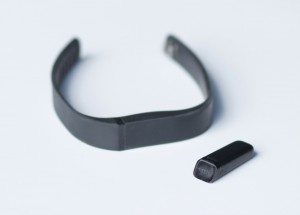 Wearable fitness bands — which can provide data including how many steps you take in a day, how many calories you burn and even your sleep patterns — have become extremely popular. According to market research data, nearly 70 million are sold worldwide each year. But do they work?
Wearable fitness bands — which can provide data including how many steps you take in a day, how many calories you burn and even your sleep patterns — have become extremely popular. According to market research data, nearly 70 million are sold worldwide each year. But do they work?
A systematic review published recently in the International Journal of Behavioral Nutrition and Physical Activity evaluates whether fitness trackers provide accurate data.
The review collates data from 22 published articles that looked at the ability of two popular fitness band models — Fitbit and Jawbone — to measure steps, distance, physical activity, calories and sleep.
In the laboratory, both models accurately counted steps. Only one study assessed how well the Fitbit measured distance traveled; it found the fitness band over estimates distance at slower speeds and under-estimates at faster speeds. (So if you’re a runner, don’t plan on using a Fitbit to measure the distance of your runs!)
The review also found that the fitness bands’ tally of calories burned throughout the day was one of the least accurate measures by both brands, and most often under-estimated. That means you’re likely burning more calories than your fitness band tells you.
Finally, the review found that the sleeping tracking functions — what I find some of the most fascinating data available through the bands — is also inaccurate. The devices measure total sleep time and sleep efficiency (or how much rest you actually get during the night.) But studies found that both measures were over-estimated by the bands in laboratory tests that compared the fitness trackers to medical sleep tests. That means you’re likely getting less rest that your fitness band tells you.
The take-home message: Fitness bands are good at keeping track of the number of steps you take. But they’re likely not accurate in measuring your distance traveled, calories burned or sleep activity.



Speak Your Mind